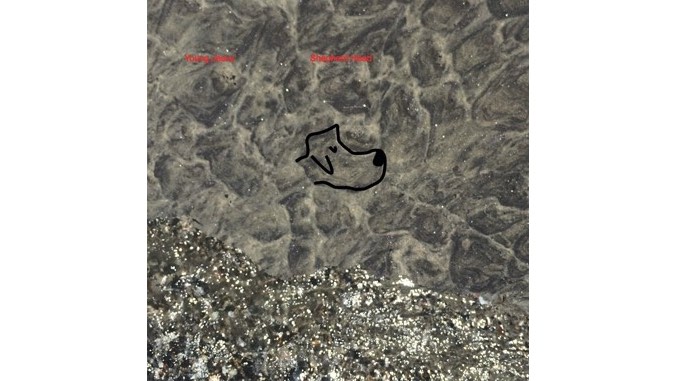Young Jesus Contemplates What Death Has in Store on Meditative Shepherd Head

Timing is everything. We can act like we can remove art from context, but it’s hard to kid ourselves into believing that our thoughts can be compartmentalized. There was a moment on Young Jesus’ 2020 breakthrough Welcome to Conceptual Beach that captured the dire hopelessness of the times better than just about anything echoing in our current, increasingly cramped quarters. The album’s liner notes denoted that the song “Meditations” came about as a result of the increasingly limitless four-piece rock band improvising in the studio. While this gave the Chicago band a chance to flex their adventurous side—moving past their early noodly beginnings as an exciting force in the burgeoning emo revival—it also delivered a primal scream from lead singer and multi-instrumentalist John Rossiter, one that felt like a rallying cry for those of us who felt paralyzed by fear of the apparent end of the lives we once knew.
As the spacious free-form flute- and synth-assisted jam swells to its apex, he begins to repeat the mantra, “I want to be around and live it.” It’s a perfect encapsulation of the themes conveyed throughout the album’s seven sprawling songs, as Rossiter does the work exploring his own feelings around faith, acceptance and living life to the fullest. But Conceptual Beach remains such an emotional trigger because of the strangeness of our lives and just how out of reach those concepts felt around that time. For the band’s follow-up Shepherd Head, Rossiter and the band are left to consider the aftermath with a record that yearns to understand what comes after we finally leave this world.
Listening to the four records the band had made before Shepherd Head, you wouldn’t exactly call Young Jesus a “chill” band. Rossiter fesses up to that. In the album’s press notes, he admits that he had pushed the band at just short of a J.K.-Simmons-frisbeeing-a-ride-cymbal level of perfectionism. “I drove the band really hard for a while, and I don’t think I realized how hard I was doing that,” he explains. “Everyone was just burnt out on me and on each other. And I think I had wanted to reflect on that more, why I did push so hard and why I could be so demanding and stubborn.” This kind of white-knuckle determination is similar to the folklore of Black Flag taking a firm no-tolerance stance on canceling band practice on Christmas Day, and can be seen in the drastic evolution of Young Jesus from record to record. A lot has changed from the relatively earnest guitar rock of their first singles in 2010 up to this point. The band, as of late, is nearly unrecognizable compared to their early self-released records like Home and Grow / Decompose. They would come to dub themselves a “philosophical jam band,” with their arrangements becoming both grandiose and increasingly loose on the records that followed. Multiple songs would stretch out to gargantuan proportions—like The Whole Thing Is Just There’s epic 20-minute closer “Gulf”—and they would incorporate free-form jams that seemed to witness the band going through every possible conclusion of a song’s idea while the tapes rolled.
If Rossiter pushed the rest of the band to their absolute breaking points in the past, then there is a general sense of calm to the overall tone of Shepherd Head. The first song tips the scale from Rossiter’s new-age philosophical lyrical tendencies to give the band a new-age sonic makeover, with jittering electric keys, washing synths and big, airy drums akin to those on Enya’s “Orinoco Flow.” The general absence of guitars is the considerable tectonic shift that Young Jesus achieves this time around. The tranquil and atmospheric flow of the album is a perfect canvas for Rossiter, who tends to bellow more than sing. His rich and emotive voice can sound at times like that of a much more timid Jeff Buckley, and with the album’s open feel, it has space to stretch, rather than snarling, like on some of the band’s more tense moments.
-

-

-

-

-

-

-

-

-

-

-

-

-

-

-

-

-

-

-

-

-

-

-

-

-

-

-

-

-

-

-

-

-

-

-

-

-

-

-

-








































